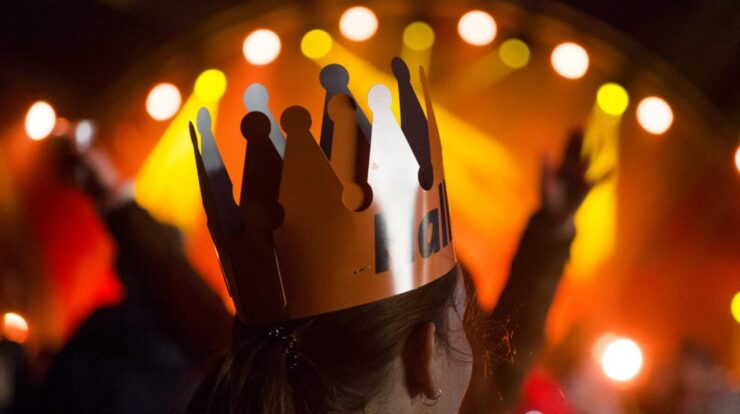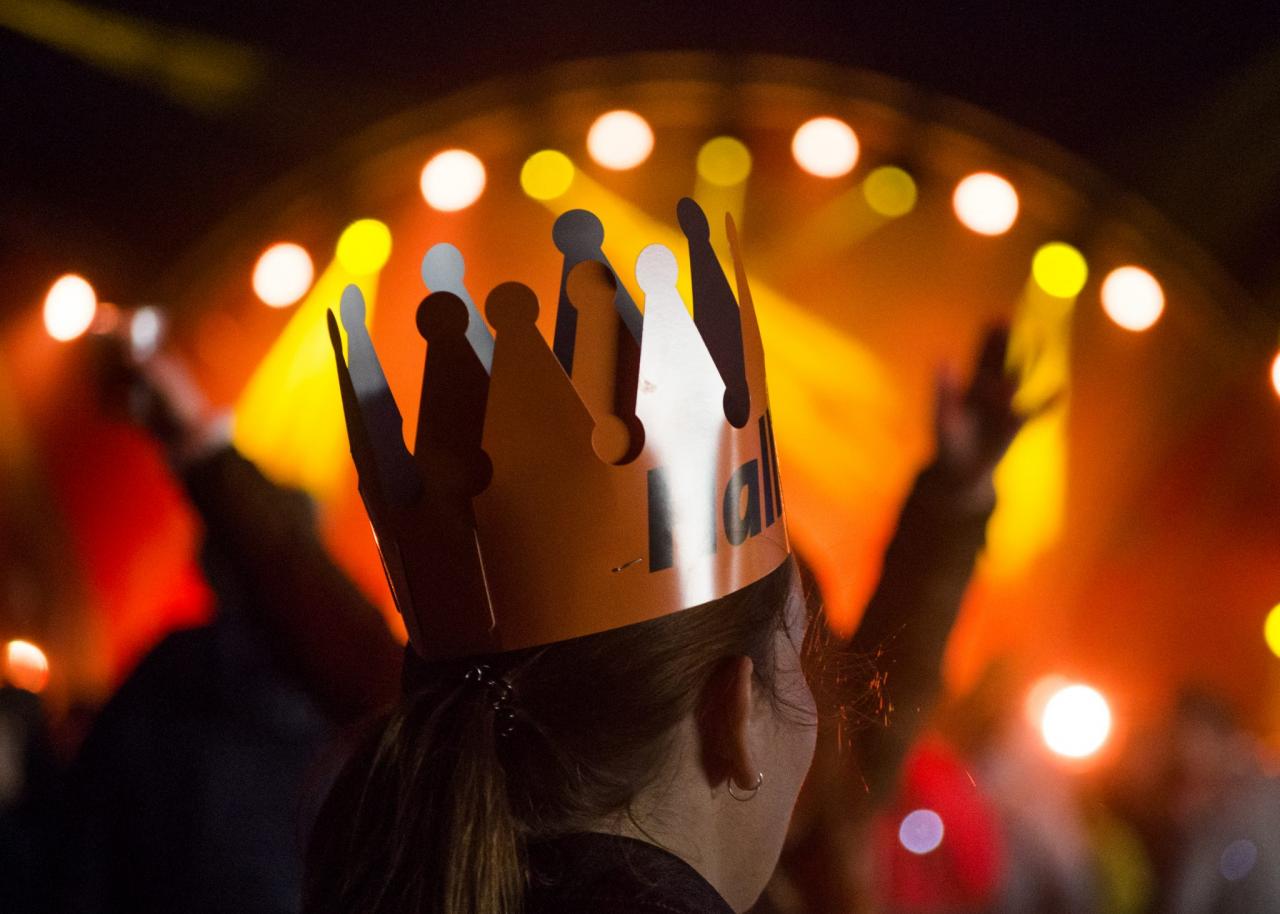
Netherlands King’s Day, a beloved annual celebration, is a vibrant display of Dutch culture and national pride. Rooted in centuries of history, this day is marked by lively festivities, unique traditions, and a deep sense of community.
Celebrated on April 27th, King’s Day honors the reigning monarch and fosters a sense of unity among the Dutch people. From bustling street markets to vibrant parades, the festivities offer a glimpse into the heart of Dutch culture and its enduring traditions.
Overview of Netherlands King’s Day
King’s Day is a national holiday in the Netherlands celebrated annually on April 27th, the birthday of King Willem-Alexander. It is a day of festivities, parades, and markets, and is one of the most popular events in the country.
The origins of King’s Day date back to 1885 when it was known as Queen’s Day in honor of Queen Wilhelmina. After Queen Juliana ascended to the throne in 1949, the holiday was renamed Queen’s Day and continued to be celebrated on her birthday, April 30th.
In 2013, King Willem-Alexander became the first male monarch of the Netherlands in over a century. To mark this occasion, Queen’s Day was renamed King’s Day and the date was changed to April 27th, his birthday.
Key traditions and festivities associated with King’s Day include the Vrijmarkt, a nationwide flea market where people sell their unwanted belongings; the Oranjebitter drink, a traditional Dutch liqueur; and the wearing of orange clothing, the national color of the Netherlands.
Official ceremonies and events held on King’s Day include a speech by the King, a parade through the streets of Amsterdam, and a concert in the evening.
Cultural Impact of King’s Day: Netherlands King’s Day
King’s Day is an important event in Dutch culture and society. It is a day when people come together to celebrate their national identity and heritage.
The social and community aspects of the celebration are particularly important. The Vrijmarkt is a great opportunity for people to connect with their neighbors and find unique items.
King’s Day also plays a role in fostering national unity and pride. The parade through the streets of Amsterdam is a spectacle that brings people together from all over the country.
Economic Impact of King’s Day
King’s Day has a significant economic impact on the Netherlands. The Vrijmarkt is a major boost to the retail sector, and the hospitality industry also benefits from the influx of tourists.
Businesses and organizations involved in the celebration also see a financial boost. The sale of orange clothing and accessories is particularly lucrative.
Global Recognition of King’s Day

King’s Day is an internationally recognized event. It is celebrated in Dutch communities around the world, and it has even gained popularity in other countries.
The reasons for its global appeal include its unique traditions, its festive atmosphere, and its association with Dutch culture.
King’s Day is celebrated in various ways outside the Netherlands. In some countries, there are parades and markets, while in others, people simply gather to enjoy the festivities.
Unique Traditions and Customs of King’s Day
| Tradition | Description | Historical/Cultural Context |
|---|---|---|
| Vrijmarkt | Nationwide flea market where people sell their unwanted belongings. | Dates back to the Middle Ages when people would sell their goods in the streets to raise money for the poor. |
| Oranjebitter | Traditional Dutch liqueur made with orange peel and spices. | Created in the 16th century to celebrate the victory of the Dutch over the Spanish. |
| Wearing of orange clothing | The national color of the Netherlands, worn by people of all ages on King’s Day. | Symbolizes the House of Orange-Nassau, the ruling royal family of the Netherlands. |
Evolution of King’s Day over Time
King’s Day has evolved significantly over time. In its early days, it was a more formal event, with parades and ceremonies being the main focus.
In recent years, the celebration has become more informal and festive. The Vrijmarkt has become a major part of the event, and people now wear orange clothing as a way to show their national pride.
The evolution of King’s Day reflects the changing values and traditions of Dutch society.
Environmental Impact of King’s Day
King’s Day festivities can have a negative impact on the environment. The use of disposable items, waste generation, and transportation emissions are all concerns.
There are a number of ways to reduce the environmental impact of King’s Day. These include using reusable items, recycling waste, and taking public transportation.
Design a Social Media Campaign for King’s Day
A social media campaign for King’s Day should be designed to promote the event globally and engage with potential participants.
Target audiences for the campaign should include Dutch people living abroad, tourists, and people interested in Dutch culture.
Relevant messaging and hashtags for the campaign could include #KingsDay, #Netherlands, and #OrangeFever.
A strategy for engaging with followers and generating excitement around the celebration could include hosting contests, sharing photos and videos, and partnering with influencers.
Illustrate the Joy and Festivities of King’s Day
Image 1: A vibrant crowd of people dressed in orange clothing, dancing and singing in the streets.
Image 2: A group of friends enjoying a picnic in a park, surrounded by orange balloons and streamers.
Image 3: A young child wearing an orange crown and waving a Dutch flag.
Image 4: A parade of floats and marching bands making their way through the streets of Amsterdam.
Image 5: A fireworks display over the canals of Amsterdam, lighting up the night sky in orange.
Ending Remarks
As a testament to its global appeal, King’s Day has gained international recognition and is celebrated in various countries worldwide. Its unique traditions, such as the wearing of orange clothing and the Vrijmarkt flea market, have become synonymous with the Dutch spirit of celebration and camaraderie.
Beyond its festive nature, King’s Day also holds significant economic and social value. It serves as a catalyst for tourism, retail, and hospitality sectors, contributing to the country’s economy. Moreover, it fosters a sense of community and strengthens the bonds between the Dutch people, reinforcing national identity and shared heritage.
Common Queries
When is Netherlands King’s Day celebrated?
Netherlands King’s Day is celebrated on April 27th.
What is the significance of the color orange on King’s Day?
Orange is the national color of the Netherlands and is associated with the royal family. It is traditionally worn on King’s Day to show support for the monarchy and national pride.
What is the Vrijmarkt?
The Vrijmarkt is a massive flea market held in Amsterdam on King’s Day. It is one of the largest flea markets in Europe, with vendors selling a wide variety of goods.




